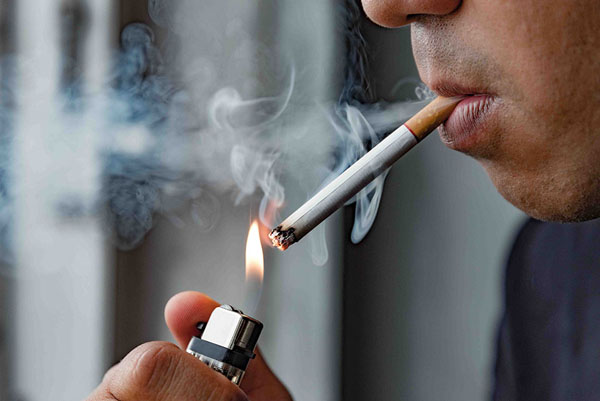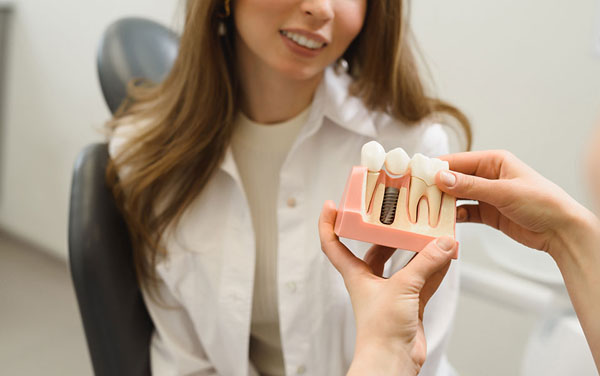Can You Get Dental Implants in Wakefield, MA?
While dental implants are the gold standard of tooth replacement, smoking can significantly impact the success of dental implants, leading to complications and reduced longevity. If you’re a smoker considering dental implants or already have them, understanding the risks and taking proactive steps is crucial for optimal oral health.
To learn how smoking affects dental implants, our dentist in Wakefield explains. Schedule an appointment at our dental office near you today by calling (781) 245-7714.
Navigation
- All-On-4 Dental Implants
- Benefits of Dental Implants
- Bone Grafting for Dental Implants
- Dental Implant Candidacy
- Dental Implant Care
- Dental Implant Cost
- Dental Implant Procedure
- Dental Implants vs. Other Tooth Replacements
- Endosteal Dental Implants
- Failing Dental Implants
- Implant-Supported Bridges
- Implant-Supported Dentures
- Mini Dental Implants
- Same-Day Dental Implants
- Single-Tooth Dental Implants
- Sinus Lift for Dental Implants
- Smoking and Dental Implants
How Smoking Affects Dental Implants
Smoking, whether it’s cigarettes, cigars, or vaping, introduces harmful chemicals into your body that can compromise your oral health. Dental implants rely on a process called osseointegration, where the implant fuses with the jawbone to create a stable foundation for the artificial tooth. Smoking disrupts this process in several ways:
- Reduced Blood Flow: Nicotine constricts blood vessels, limiting oxygen and nutrient delivery to the surgical site. This slows healing and weakens the bone-implant bond.
- Weakened Immune Response: Smoking impairs your immune system, increasing the risk of infections like peri-implantitis, a condition that causes inflammation and bone loss around the implant.
- PoorBone Quality: Long-term smoking reduces bone density, making it harder for the implant to anchor securely.
- Delayed Healing: Smokers often experience slower recovery times after implant surgery, leading to prolonged discomfort and higher complication rates.
- Increased Risk of Dental Implant Failure: Smoking also increases the risk of implant failure. Nicotine and other chemicals found in cigarettes weaken the bone and make it more difficult for the implant to fuse with the bone. Smoking can also increase the risk of developing an infection, leading to implant failure if not treated as soon as possible.
- Increased Risk of Peri-Implantitis: Peri-implantitis is a condition that occurs when the tissue around the implant becomes infected and inflamed. Smoking can increase the risk of peri-implantitis, which can lead to implant failure and the need for additional surgeries.
Are you ready to get started with dental implant treatment? Contact our Wakefield dentist today at (781) 245-7714.
Risks of Smoking Before and After Dental Implant Surgery
Before Surgery
Smoking before dental implant surgery can set the stage for complications:
- Compromised Oral Health: Smoking increases plaque and tartar buildup, raising the risk of gum disease. Healthy gums are essential for implant success.
- Bone Density Issues: Chronic smoking weakens the jawbone, making it less capable of supporting an implant.
- Increased Infection Risk: Smokers are more susceptible to infections, which can complicate the surgical process.
Dentists often recommend quitting smoking at least 4 to 6 weeks before surgery to improve blood flow, enhance healing, and reduce complications.
After Surgery
Smoking immediately after dental implant placement is particularly harmful:
- Disrupted Healing: The suction motion of smoking can dislodge blood clots, leading to a painful condition called dry socket. This delays healing and increases infection risk.
- Infection Vulnerability: Post-surgical wounds are more prone to bacterial infections in smokers, potentially leading to implant failure.
- Impaired Osseointegration: Smoking during the critical 3 to 6-month osseointegration period can weaken the bone-implant bond, increasing the likelihood of implant loosening.
Benefits of Quitting Smoking for Dental Implants
Improved Implant Success Rate
Non-smokers have a 95 to 98% implant success rate, compared to 80 to 90% for smokers. Quitting smoking aligns your success rate with that of non-smokers.
Faster Healing
Without nicotine and toxins slowing recovery, your surgical site will heal more quickly, reducing discomfort and complications.
Stronger Bones and Gums
Quitting smoking improves blood flow and oxygen delivery, promoting healthier bone and gum tissue. This strengthens the foundation for your implants.
Reduced Risk of Peri-Implantitis
By quitting, you lower your risk of infections like peri-implantitis, which can lead to implant failure.
Enhanced Overall Health
Quitting smoking reduces your risk of heart disease, lung cancer, and other serious conditions, improving your quality of life.
How to Quit Smoking
- Seek Support: Join a smoking cessation program or work with a counselor.
- Use Aids: Nicotine patches, gum, or medications can ease withdrawal symptoms.
- Set Goals: Create a quit plan with milestones to stay motivated.
- Replace Habits: Find healthy alternatives, like chewing sugar-free gum or exercising, to replace smoking triggers.
To learn if dental implants are right for you, contact our Wakefield dentist today at (781) 245-7714.
Frequently Asked Questions
Can I smoke after getting dental implants?
Smoking after dental implant surgery is strongly discouraged, especially during the first 2 to 3 months. Smoking can disrupt healing, increase infection risk, and impair osseointegration. Your dentist may recommend quitting or abstaining for at least 8 weeks post-surgery.
Can I use nicotine replacement therapy instead of quitting smoking?
No, it’s not recommended. Nicotine replacement therapy can restrict blood flow to the gums and jawbone, negatively impacting the healing process. Discuss smoking or nicotine replacement therapy with your dentist before proceeding with implant treatment.
What happens if my dental implant fails due to smoking?
If an implant fails, it may need to be removed, and the site will require healing before a new implant can be placed. Quitting smoking and addressing any underlying issues (like bone loss) can improve the chances of success for a replacement implant.
Implant Dentistry Near You
Dental implants and smoking don’t mix. Dental implants can transform your smile and quality of life, but smoking poses significant challenges to their success. Don’t let smoking stand in the way of your perfect smile. Get in touch with our Wakefield dentist near you at(781) 245-7714.


